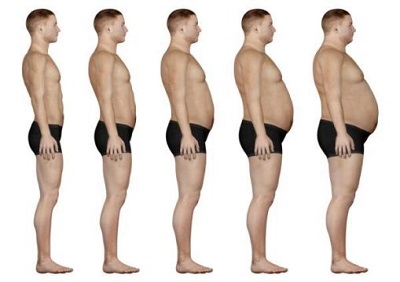A study by the Food and Agriculture Organisation, FAO, has revealed that about 1.2 million Ghanaians are obese.
According to FAO, the figure is alarming and the need for Ghanaians to be more conscious about what they eat.
Speaking at an obesity forum in Accra, Senior Communications Officer at FAO, Daisy Lyon said most of these individuals are prone to some other diseases like cancer and diabetes based on their research.
She added that the figure and the need for more education on the ways to prevent.
"Our statics show that there are around 1.2 million Ghanaians who are obese and Ghana used to be number 2 in the number of people having the most obese but the problem is it's now steadily increasing and is quite alarming the way that this is happening because obesity we all know causes a lot of diseases, our study shows that it causes cancer, diabetes."
The FAO asked Ghanaians to diversify their food consumption as obesity is a diet-related disease.
Some causes of obesity
1. Genetics
Your genes may affect the amount of body fat you store, and where that fat is distributed. Genetics may also play a role in how efficiently your body converts food into energy and how your body burns calories during exercise.
Family lifestyle.
Obesity tends to run in families. If one or both of your parents are obese, your risk of being obese is increased. That's not just because of genetics. Family members tend to share similar eating and activity habits.
Inactivity.
If you're not very active, you don't burn as many calories. With a sedentary lifestyle, you can easily take in more calories every day than you burn through exercise and routine daily activities. Having medical problems, such as arthritis, can lead to decreased activity, which contributes to weight gain.
Unhealthy diet.
A diet that's high in calories, lacking in fruits and vegetables, full of fast food and laden with high-calorie beverages and oversized portions contribute to weight gain.
Medical problems.
In some people, obesity can be traced to a medical cause, such as Prader-Willi syndrome, Cushing's syndrome and other conditions. Medical problems, such as arthritis, also can lead to decreased activity, which may result in weight gain.
Certain medications.
Some medications can lead to weight gain if you don't compensate through diet or activity. These medications include some antidepressants, anti-seizure medications, diabetes medications, antipsychotic medications, steroids, and beta blockers.
Social and economic issues.
Research has linked social and economic factors of obesity. Avoiding obesity is difficult if you don't have safe areas to exercise. Similarly, you may not have been taught healthy ways of cooking, or you may not have money to buy healthier foods. In addition, the people you spend time with may influence your weight — you're more likely to become obese if you have obese friends or relatives.
Age.
Obesity can occur at any age, even in young children. But as you age, hormonal changes and a less active lifestyle increase your risk of obesity. In addition, the amount of muscle in your body tends to decrease with age. This lower muscle mass leads to a decrease in metabolism. These changes also reduce calorie needs and can make it harder to keep off excess weight. If you don't consciously control what you eat and become more physically active as you age, you'll likely gain weight.
Pregnancy.
During pregnancy, a woman's weight necessarily increases. Some women find this weight difficult to lose after the baby is born. This weight gain may contribute to the development of obesity in women.
Quitting smoking.
Quitting smoking is often associated with weight gain. And for some, it can lead to enough weight gain that the person becomes obese. In the long run, however, quitting smoking is still a greater benefit to your health than continuing to smoke.
Lack of sleep.
Not getting enough sleep or getting too much sleep can cause changes in hormones that increase your appetite. You may also crave foods high in calories and carbohydrates, which can contribute to weight gain.
Read also:





